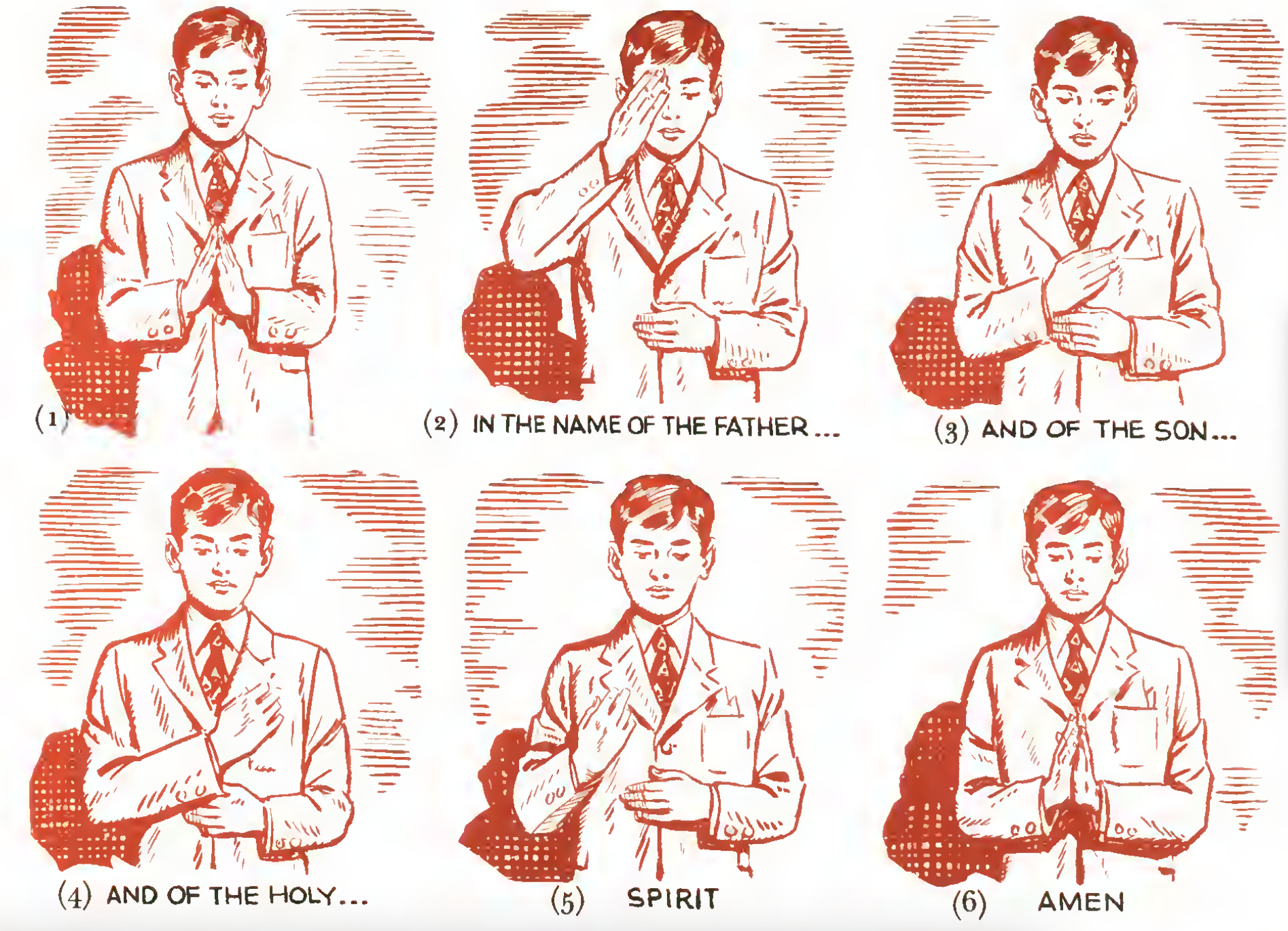There are certain places in the liturgy where we are encouraged to make the sign of the cross (tracing the sign of the cross over ourselves from head to chest, and from shoulder to shoulder). Most frequently this occurs when we say the Triune name ("In the Name of the Father, of the Son, and of the Holy Spirit"), or when we give or receive blessings.
This is not some random act of superstition but rather a proclamation that all blessing and power and hope and victory and divinity come to us through nothing other than the Cross of Jesus (Gal.6:14). By the work of Jesus on Calvary do I understand the mystery of the life of the Trinity (Heb. 9:14); by the Cross has victory eternal been achieved (Acts 4:12); it is the Cross that stands between me and my sins (Rom. 5:9); through the power of the Cross I live in the Spirit (Gal.2:20).
Through Christ's eternal sacrifice on the Cross do the creatures of bread and wine become Holy Communion with the Living God (1 Cor. 11:23-26).
I make the sign of the cross when we sing “Blessed is He who comes in the Name of the Lord” during the Sanctus and so signify that the Lord of the Cross is the One who Comes in the Name of the Lord (Ps. 118:26; cf. Matt. 23).
We make the sign of the Cross over the waters of Baptism because in baptism we are buried with Christ and raised again with him (Rom. 6:4-11).
We make the sign of the Cross over our bodies because, through the majesty of the Cross, they have become bodies that will rise again with Jesus on the last day (Phil. 3:10).
To make a “gesture” means, according to Marcus Terentius Varro, neither “making something” (like a playwright writing a tragedy) nor “acting something” (an actor acting-out tragedy) but rather, like the captain on the battlefield, “brining-things about” and “giving orders.” The sign of the Cross, as a gesture, is like that too: I’m neither play-acting the cross, nor am I making something goetically or otherwise, but rather I am “bringing things about” I am hailing the Lord of the Cross, and claiming my allegiance to him, I am aligning myself with the power of the Cross (1 Cor. 2:2). [NB: I am indebted to Giorgio Agamben, here, and Adam Kotsko, here, and Philippe Theophanidis, here, for their reflections on Varro].
Folks may think making the sign of the Cross is just plain foolishness, but that's precisely the point --right? "For the word of the cross is folly to those who are perishing, but to us who are being saved it is the power of God" (1 Cor. 1:18).


